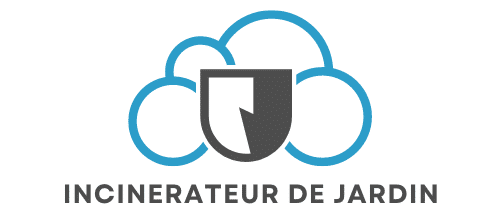Maximize online privacy with residential proxies today

Online privacy is more important than ever. Residential proxies can provide a crucial layer of protection in an age where data is constantly being monitored. Unlike traditional proxies, residential proxies use real IP addresses, making your online presence appear more legitimate and less likely to be flagged. This article explores the advantages of residential proxies, how to implement them effectively, and top tips for maximizing your privacy and security online.
Understanding Residential Proxies
Residential proxies are powerful tools for enhancing online privacy and internet security. Unlike data center proxies, these proxies use IP addresses provided by Internet Service Providers (ISPs) to actual residential locations, making online activity appear more organic and harder to detect. This feature offers users a significant advantage in hiding their real IP address, thus shielding sensitive data and enabling access to regionally restricted content. For a deeper look at their benefits, Check it out now.
A découvrir également : How can AI be used to improve the precision of environmental monitoring systems?
Key Differences Between Residential and Data Center Proxies
Residential proxies stand out for their legitimacy, as they mimic everyday user traffic with authentic residential IP addresses, while data center proxies rely on artificial IPs from server farms. The former is better suited for tasks requiring high anonymity, such as safe internet surfing, bypassing geo-restrictions, or streaming securely. Additionally, residential proxies are harder for websites to block due to their appearance of normal usage patterns, unlike data center proxies that are more easily flagged.
Enhancing Users' Anonymity and Security
These proxies provide an essential buffer against online threats like data breaches and invasive tracking. They mask the user's digital footprint, protect sensitive information, and support secure transactions. With residential proxies, even extensive tasks like web scraping or social media management can be carried out without compromising privacy.
A lire aussi : How can augmented reality be used to improve remote technical support for industrial equipment?
Practical Applications of Residential Proxies
Residential proxies offer a unique advantage by routing internet traffic through real IP addresses assigned by Internet Service Providers (ISPs), making them appear as regular users. This authenticity allows users to bypass geographical restrictions, avoid IP blocks, and perform tasks that require a high level of anonymity. Consequently, residential proxies are widely used for web scraping, ad verification, social media management, and accessing geo-restricted content.
Use Cases in Personal Privacy Protection
Residential proxies are instrumental in enhancing online privacy by masking real IP addresses, thus preventing online tracking. They provide a secure solution for individuals looking to protect sensitive information. For instance, when accessing banking platforms or conducting confidential online transactions, using residential IP addresses ensures data remains secure. These proxies also prevent advertisers from constructing detailed profiles, allowing for safe internet surfing without invasive tracking or targeted ads.
Business Applications for Data Scraping
Businesses rely on residential proxies to bypass restrictions and gather critical data efficiently. Scraping e-commerce prices or market trends demands the anonymity that proxies provide. Leveraging residential proxy use cases, companies can mimic genuine user behavior across various websites, avoiding detection and maintaining uninterrupted operations. The benefits of using a proxy server in these scenarios include reliable data harvesting while evading bans or flagging mechanisms.
Managing Multiple Social Media Accounts Safely
Maintaining online privacy is crucial when managing multiple social media accounts. Residential proxies help by assigning unique IP addresses to each account, mitigating risks of bans. This approach also supports safe internet surfing by shielding identities, making it a vital tool for influencers or businesses needing effective online presence management.
Choosing and Optimizing Residential Proxy Services
Residential proxies offer genuine IP addresses, making online activities appear as if they originate from real users, crucial for tasks requiring anonymity and avoiding detection. Selecting the right residential proxy service involves considering factors like pool size, location targeting, speed, and cost-effectiveness to meet specific needs. Optimizing these services through proper configuration, rotation strategies, and monitoring ensures peak performance and minimizes the risk of blocks or restrictions.
Factors to Consider When Selecting a Provider
When choosing residential proxy providers, reliability, anonymity, and security should be top priorities. A provider's network of residential IP addresses plays a crucial role in maintaining online anonymity by mimicking legitimate user behavior. Look for services that provide a large pool of IPs with diverse geographical coverage to ensure smooth and unrestricted internet traffic masking. Speed and connection stability are equally important, especially for tasks like secure online transactions or continuous browsing.
Cost can also influence your decision, but affordable doesn’t have to mean compromising on quality. Many custom proxy solutions for privacy provide tailored packages designed for unique needs, ensuring users maximize privacy without overspending. Transparent customer support and ease of integration with privacy tools add further value to the investment.
Implementing Optimal Proxy Settings
Optimizing proxy settings is critical for enhancing internet security. Update configurations regularly to address vulnerabilities, and use proxies that support encryption protocols like SSL for protecting sensitive information. Tailored settings enable smooth performance whether you’re securing an online session or circumventing geo-restrictions for better access to global content.
Combining Proxies with Other Privacy Tools for Enhanced Security
Pairing proxies with additional tools like VPNs strengthens privacy against hackers. Together, they multiply security layers, effectively masking locations while encrypting data for safe internet surfing and anonymous browsing solutions.
